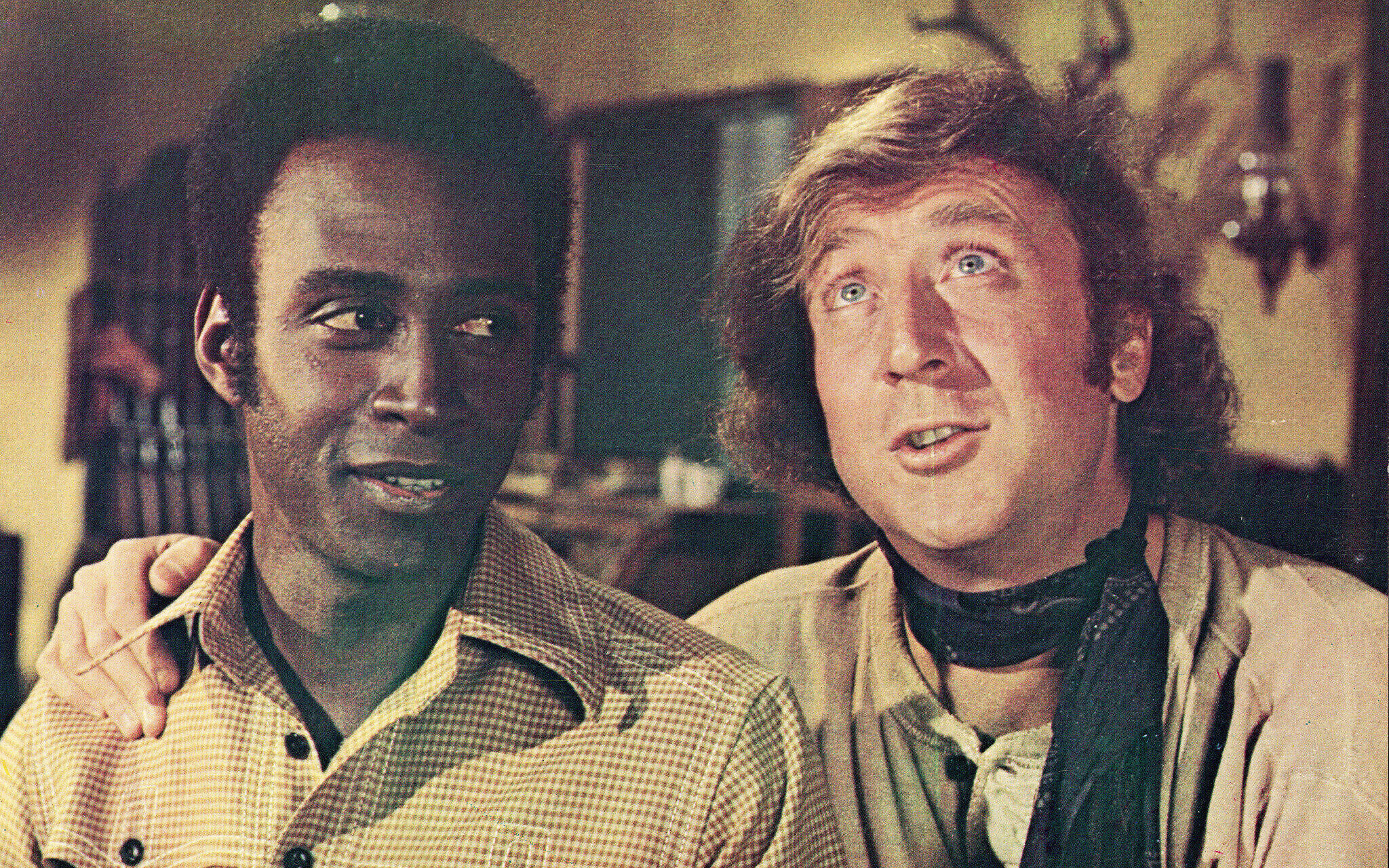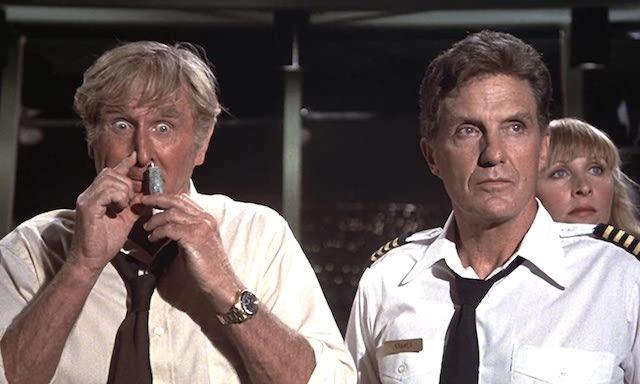There hasn't been a good spoof or parody movie in years.
When was the last time you remembered a spoof film getting a wide release that also had a strong critical following? Even 'Anchorman', arguably a hybrid of spoof comedies, only received middling reviews on release. It wasn't until years later that it pierced through and reached audiences. Spoof and parody movies are a dead genre, and have been for many years. There's only a handful of examples that had both critical reception and commercial prowess going for them, and they're rightfully held up as paragons of the genre.
Mel Brooks' ode to Westerns, 'Blazing Saddles', was a triumph when it was released back in 1974, and became the tenth movie to pass the $100 million mark at the US box office. Critics loved it for just how knowing, smart and subversive it was. Everyone loved it for the fart jokes, the racist-poking jokes, and the fact that Gene Wilder's charisma is enough to carry any film - never mind one of the best comedies ever made. The movie was an outright spoof of the Westerns that had proven popular throughout the '50s and '60s, but was more or less out of favour by the '70s.
The writer's room, as described by Brooks, was pure chaos. "Blazing Saddles was more or less written in the middle of a drunken fistfight," said Brooks in an interview in 2016 with Creative Screenwriting. "There were five of us all yelling loudly for our ideas to be put into the movie. Not only was I the loudest, but luckily I also had the right as director to decide what was in or out." Andrew Bergman, who worked on the screenplay with Brooks and Richie Pryor, described it as "a rioter's room." Either way, what came out of it was something original and never before seen - and a genre was born off the back of its success.
 Gene Wilder and Cleavon Little on the set of 'Blazing Saddles'
Gene Wilder and Cleavon Little on the set of 'Blazing Saddles'On the set of 'Blazing Saddles', Gene Wilder - who played the Waco Kid - pitched Brooks an idea that had been germinating in his mind for quite some time, but could never get produced. That idea became 'Young Frankenstein', which garnered Brooks and Wilder an Oscar nomination for Best Adapted Screenplay. In both instances, the movie was a spoof of a tried-and-trusted genre, but done in a way that was both knowing, affectionate and funny in its own right.
It didn't have to rely heavily on parody as the comedy was rich enough on its own and the writing was so good, all it needed was able performers to carry it all out.
Before long, comedy troupes such as The Kentucky Fried Theater, The Second City, and The Groundlings were working on their own parodies and sketches. The most prominent of these was the Kentucky Fried Theater and the trio of Jerry Zucker, David Abrahams, and David Zucker, who wrote and directed 'Airplane!' in 1980. Like 'Blazing Saddles', 'Airplane!' was a direct parody - in some cases, almost shot-for-shot and line-for-line - of a low-rent drama called 'Zero Hour!' - and yes, it had the same exclamation point as 'Airplane!'.
Up until this point, actors like Leslie Nielsen and Peter Graves were known as strong-jawed heroic types. Graves was, of course, the leading star on the original TV series of 'Mission: Impossible', playing IMF team leader Jim Phelps. Leslie Nielsen, meanwhile, was primarily known for roles in 'The Poseidon Adventure' with Gene Hackman, and pioneering sci-fi epic 'Forbidden Planet'.
What they both did so well was deadpan. This, in turn, was what made 'Airplane!' so convincing. Nobody could really understand why these relatively dour, straight actors were making wordplay jokes, talking about Turkish prisons, and generally engaging in the kind of buffoonery that only worked for seasoned comics like Brooks et al. It was a quantum shift in comedy and parody / spoof films became more popular again.
Nielsen had a career resurgence in comedy roles and followed this up with the less-critically successful but still much-loved 'Naked Gun' trilogy. The Zucker / Abrahams / Zucker trio continued with 'Hot Shots!', and 'Hot Shots! Part Deux' - the former of which was selected by the British Royal Family for their prestigious annual command performance in 1991.
Things began to turn sour in and around the time of 'Scary Movie', when two writers - Jason Friedberg and Aaron Seltzer - came on the scene. Through an acquaintance with Nielsen, their screenplay for 1996's 'Spy Hard' was accepted and produced. It was critically reviled but made a fortune. Their next project, 'Scary Movie', was taken on by Keenen Ivory Wayans, who himself had directed 'I'm Gonna Git You Sucka', a parody of blaxploitation movies of the '70s.
'Scary Movie' was a reaction to the popularity of 'Scream', 'I Know What You Did Last Summer', and the resurgence in teenage slasher movies. Other timely parodies were thrown in for good measure, but it was clear that the comedy was less about honouring the genre it was parodying than actively making fun of it. Not only that, but the jokes also became duller and any kind of style was shoved out in favour of a pop culture reference.
Yet, they all made money - lots of money. Over the course of the five 'Scary Movie' movies, they made a total of $896,555,030 against a total production budget of $177 million. In all instances, not one of the films made it above 50% on Metacritic or Rotten Tomatoes.
Parody movies effectively died out as a going concern around the end of the '00s and were now mostly relegated to VOD releases. The Friedberg / Seltzer duo are notoriously private and rarely give interviews. Jerry Zucker, David Abrahams and David Zucker haven't made a movie together since 'The Naked Gun' trilogy. Mel Brooks, for the most part, retired from directing films in 1995 when 'Dracula: Dead And Loving It' - also starring Leslie Nielsen - flopped at the box office.
It's hard to point what exactly it was that made audiences and critics turn against spoof and parody films. It might simply be that you can only make the same joke so many times before it becomes stale. Ask any director in the genre of comedy and they'll tell you that it's an incredibly difficult genre to work in. Laughing is natural, and that can't be manufactured or followed in a formula. It has to happen naturally. Sometimes, there are jokes or styles of comedy that become dated.
Yet, for all of that, you can still throw on 'Blazing Saddles', 'The Naked Gun', or even 'Airplane!' and they're as funny then as they are now. So, is it a case then that parody movies have become dated, or that nobody's been able to step up and make a good one?









































































